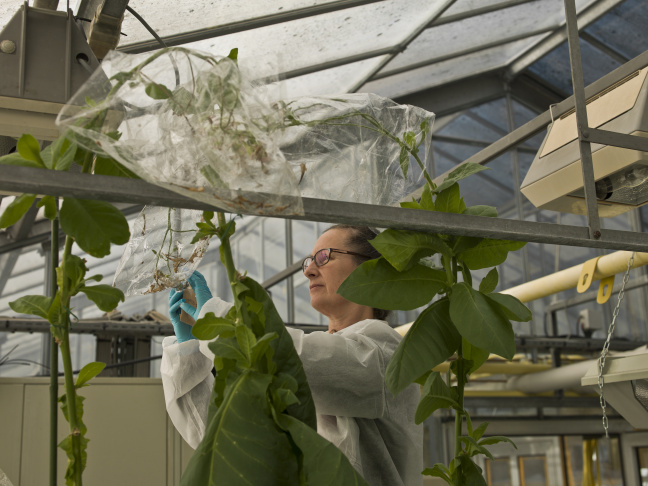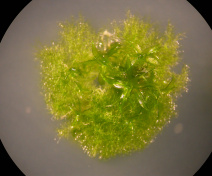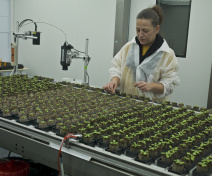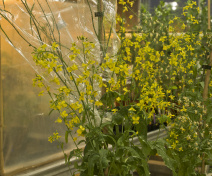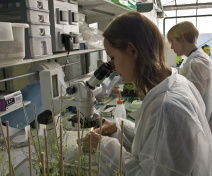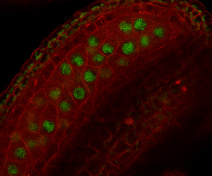The “GENOMES” department explores the fundamental mechanisms maintaining the stability, the expression and the diversity of plant genomes and epigenomes.
Biological Question
Our research aims at understanding how genomes, including those of organelles, function in plants by describing their organization, their diversity and the regulatory pathways controlling their expression and stability. Groups in the department address biological questions regarding the molecular aspects of DNA recombination and repair, the genetic and epigenetic control of transposons, viruses and transgenes, gene expression, the genetic variation involved in stress adaptation or domestication.
Models, tools and methods
Teams working in the department conduct basic research in plant molecular biology using genetics, cytology, protein biochemistry as well as technologies allowing for comprehensive analysis of Next-Generation Sequencing (NGS) data. The model plants used are mainly Arabidopsis and tomato, but also include rapeseed, tobacco or basal land plants such as moss.
Societal and economical impacts
Our research will help to enhance plant breeding in several ways: by understanding the genetics of domestication processes, identifying new targets for stress-related breeding programs, and deciphering new ways to control the genetic and epigenetic diversity within cultivated populations. Research developed in the department will also help to optimize genome editing in plants.
Our research aims at understanding how genomes, including those of organelles, function in plants by describing their organization, their diversity and the regulatory pathways controlling their expression and stability. Groups in the department address biological questions regarding the molecular aspects of DNA recombination and repair, the genetic and epigenetic control of transposons, viruses and transgenes, gene expression, the genetic variation involved in stress adaptation or domestication.
Models, tools and methods
Teams working in the department conduct basic research in plant molecular biology using genetics, cytology, protein biochemistry as well as technologies allowing for comprehensive analysis of Next-Generation Sequencing (NGS) data. The model plants used are mainly Arabidopsis and tomato, but also include rapeseed, tobacco or basal land plants such as moss.
Societal and economical impacts
Our research will help to enhance plant breeding in several ways: by understanding the genetics of domestication processes, identifying new targets for stress-related breeding programs, and deciphering new ways to control the genetic and epigenetic diversity within cultivated populations. Research developed in the department will also help to optimize genome editing in plants.
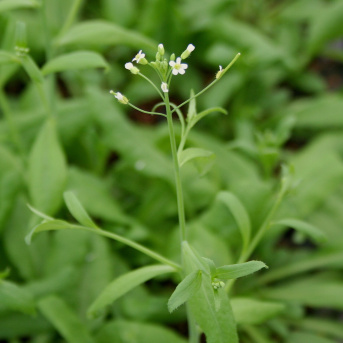
Department head:
Nicolas Bouché
Mathilde Grelon (deputy)
Nicolas Bouché
Mathilde Grelon (deputy)
